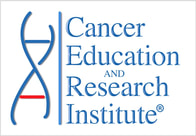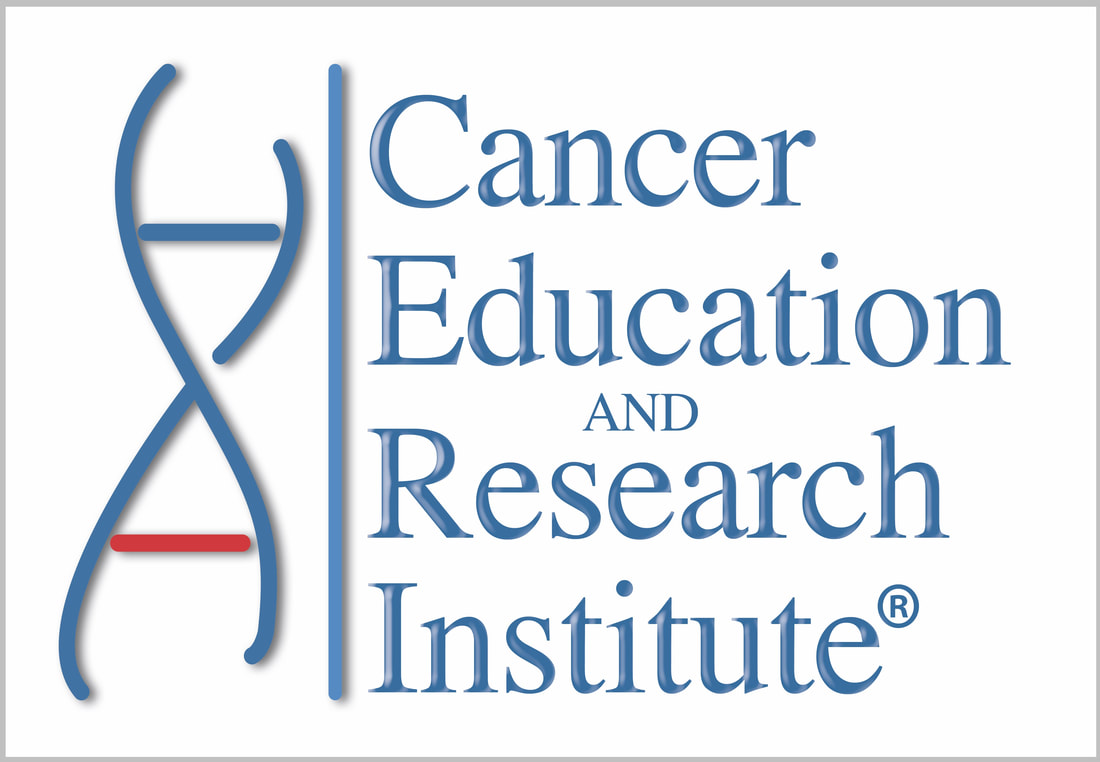Cancer Education and Research Institute (CERI)'s Cancer Education Programs
Our Team of cancer experts at Cancer Education and Research Institute® (CERI)'s, formerly Cancer Research Simplified, provides you with the most reliable, most up-to-date, and simplified cancer information available. Our educational programs quickly became trusted and highly sought after worldwide.
CERI strongly stands behind the importance of cancer patient empowerment and is a worldwide leading source for simplified, multi-language cancer education. Knowledge is power and empowerment is the key for greater treatment success, early diagnosis, as well as cancer prevention.
For any questions or requests, please submit your inquiry at our CERI Personalized Patient Program™ page.
CERI strongly stands behind the importance of cancer patient empowerment and is a worldwide leading source for simplified, multi-language cancer education. Knowledge is power and empowerment is the key for greater treatment success, early diagnosis, as well as cancer prevention.
For any questions or requests, please submit your inquiry at our CERI Personalized Patient Program™ page.
Rare Cancers
Aygün Sahin, MSc, PhD | CEO, President, and Cancer Lead, Cancer Education and Research Institute (CERI)
Rare cancers make up 24% of all cancer diagnoses and deaths. Rare cancers are defined as those with an incidence of <6/100,000 people per year.
Historically, they have been divided into two groups:
5-year survival for rare cancers (48.5%) is worse than for common cancers in adults (63.4%).
Historically, they have been divided into two groups:
- Cancers defined by their unusual histogenesis (cell of origin of differentiation state), including chordomas or adult granulosa cell tumors
- Cancers historically defined sub-types of common cancers.
5-year survival for rare cancers (48.5%) is worse than for common cancers in adults (63.4%).
Rare Cancers in U.S. Populations
In the United States rare cancers make up a larger proportion of cancers diagnosed in Hispanic (24%) and Asian/Pacific Islander (22%) patients compared with non-Hispanic blacks (20%) and non-Hispanic whites (19%).
Rare Cancers and Children
More than two-thirds (71%) of cancers occurring in children and adolescents are rare cancers. In patients aged 65 years and older, however, this rate goes down to less than 20%.
5-year relative survival is substantially higher for children and adolescents diagnosed with a rare cancer (82%) than for adults (46% for ages 65-79 years).
5-year relative survival is substantially higher for children and adolescents diagnosed with a rare cancer (82%) than for adults (46% for ages 65-79 years).
Rare Cancers – Solid Tumors
Rare cancers share similar problems with common cancers:
- uncertainty of diagnosis
- lack of therapies
- poor research opportunities
- difficulties in clinical trials
- lack of expertise
- centers of reference
Problems Specific to Rare Cancers
- Due to their low incidence rate, medical treatment for rare cancers is more challenging than for more common cancer types.
- Rare cancer patients are more often confronted with delayed or false diagnosis and late (or no) referral to a center of expertise [this is where we, Cancer Education and Research Institute (CERI) jump in and turn things around! - see our CERI Personalized Patient Program]
- Rare cancer patients report higher levels of distress, insecurity, loneliness, social isolation, anxiety and an overall lower quality of life compared to common cancer patients.
Solution for Rare Cancers
A multidisciplinary approach is essential in rare cancers. Not only for diagnosis, but also because rare cancers require complex surgical treatment, and require further special treatments. Diagnosis and treatments should be provided in centers of expertise [can be researched and referred by us, CERI – see our CERI Personalized Patient Program] and/or in networks including expert centers.
References:
- Rare cancers in Japan: definition, clinical features and future perspectives
Akira Kawai et al. Jpn J Clin Oncol. 2020 Sep 5;50(9):970-975. https://pubmed.ncbi.nlm.nih.gov/32719865/ - Rare cancers and cancer of unknown primary: Here's what you should know!
Eur J Cancer Care (Engl). 2021 Nov;30(6):e13508. Saskia F A Duijts and Jan Maarten van der Zwan
https://pubmed.ncbi.nlm.nih.gov/34755410/ - Rare cancers: a sea of opportunity. Niki Boyd, et al. Volume 17, ISSUE 2, e52-e61, February 01, 2016 https://doi.org/10.1016/S1470-2045(15)00386-1
- The burden of rare cancers in the United States. Carol E DeSantis et al. CA Cancer J Clin. 2017. 2017 Jul 8;67(4):261-272. https://acsjournals.onlinelibrary.wiley.com/doi/full/10.3322/caac.21400
Are you diagnosed with rare cancer and experience Depression and Anxiety?
We have many resources on depression and how to overcome it. Find all the resources here.
Do you need help with cancer diagnosis?
Please fill the application form on our CERI Personalized Patient Program page - we CAN help you!
#Empowermentagainstcancer™ #CERICancerEducation #CERICares #CancerSimplified
#cancer #depression #canceranddepression #cancereducation #cancerresearch #cancertreatment #canceredinstitute
GET YOUR FREE ARTICLE: Make sure to get your free article as our gift to you! Go to: canceredinstitute.org/ceri-simplified-cancer-research-articles
CORONAVIRUS PAGE: For our educational and up-to-date informational page on Coronavirus, go to: canceredinstitute.org/coronavirus
FOLLOW US for DAILY information and updates:
CORONAVIRUS PAGE: For our educational and up-to-date informational page on Coronavirus, go to: canceredinstitute.org/coronavirus
FOLLOW US for DAILY information and updates:
- INSTAGRAM: instagram.com/canceredinstitute
- FACEBOOK: facebook.com/canceredinstitute
- Twitter: twitter.com/canceredinst
- LinkedIn: linkedin.com/company/canceredinstitute
You might also like:
Disclaimer: We can not assume responsibility of misinterpretation of content.










